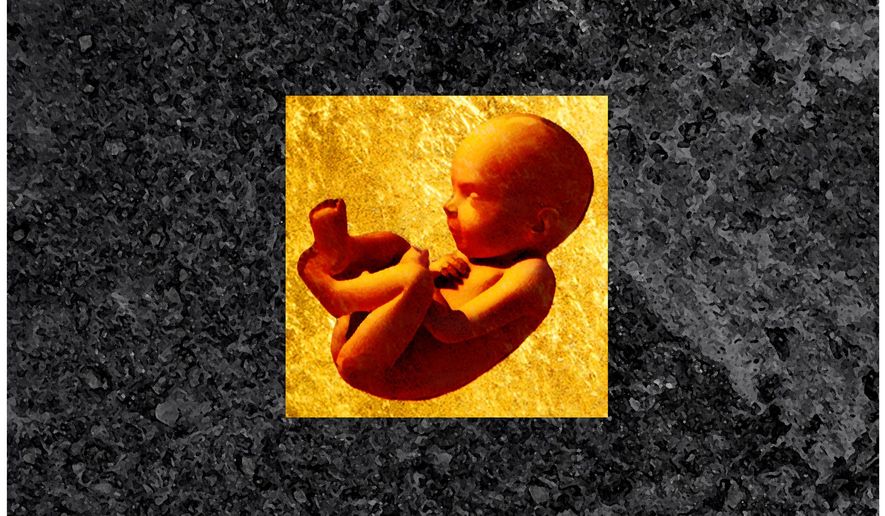OPINION:
Next month the Supreme Court of the United States will begin its October session with a monumental case on the docket. In the Dobbs late abortion case, the Court will consider a single question: whether all pre-viability prohibitions on elective abortion are unconstitutional.
The pre-viability limit in Dobbs, courtesy of a bipartisan Mississippi law, is 15 weeks of gestation. “Viability” is the point at which an unborn child can survive on its own outside the womb – a stage Roe v. Wade described in 1973 as 24 to 28 weeks of pregnancy, but which in fact may now be as early as 21 weeks, with active treatment in modern neonatal intensive care units.
Mississippi’s law, as it turns out, is very moderate by global standards. A study of European law for the Charlotte Lozier Institute determined that Mississippi’s proposal is a mainstream step away from the radical extremity of U.S. abortion law and consistent with the laws of the vast majority of European countries. Important as that is, the heart of the issue in Mississippi is the ever-clearer irrationality, as a matter of science, medicine, and human rights, of allowing these amazingly complex human beings in the womb to be destroyed on demand. The “perinatal revolution,” as scholars have called it, is one of the most thrilling stories in all of medicine, as insight after insight about our brothers and sisters in utero have led to changes in understanding and options for care for these little ones.
Consider just some of the amazing facts about life at 15 weeks of development. The developing baby’s heart has been beating for more than two months at that stage of pregnancy. By 15 weeks, that heart has already beat some 15,800,000 times and is pumping 26 quarts of blood throughout its body every day. By the time the child is born, that heart will have beat some 54 million times. Throughout a lifetime, that same heart will beat an astonishing 3.2 billion times.
One of the authors of this article is lefthanded (despite all efforts to convert him); the other is righthanded. This is not an artifact of random genetic events but the lifelong exhibition of a preference that was evident at 15 weeks gestation. In fact, by studying ultrasounds – the near-ubiquitous technology that has given us a dazzling window into the womb – scientists have determined that 85 percent of unborn babies favor moving their right hand over their left hand, a ratio that persists into adulthood. If a twin, the unborn baby moves more gently when reaching toward her twin’s face.
Even as early as 15 weeks, the baby’s palate is shaped by the mother’s diet. Flavors from the mother’s food seep into the amniotic fluid that surrounds the baby, peaking after about 45 minutes. If the amniotic fluid tastes sweet because of an infusion of saccharin, the 15-week-old baby swallows more. If the fluid tastes bitter, the baby swallows less. In short, the baby dines at the same table as the mother.
Some policymakers comfort themselves about abortion by downplaying these shared characteristics; others simply deny the science, particularly the sense of touch and responsiveness to pain. Science has increasingly underscored how off the mark these comforts are.
First, the baby responds to light touches over most of the body. If something touches the baby’s palm, the baby will bend their fingers as if to grasp the object. More specifically, neurotransmitters specific to pain processing appear between 10 and 14 weeks of gestation. The spinal nerves needed to transmit pain to the thalamus have formed by 15 weeks.
The message of all these findings – all of which declare the explosive dynamic of the growth of human beings in the womb – is simple.
The unborn child is a work of art in progress in a few respects but whole and fascinating in its full array of attributes. When our nation’s founders, and its centuries of advocates for human rights, spoke of being “endowed by our Creator” with the inalienable right to life, they did not exclude the child inside its mother. Mississippi’s law accords with this truth, and both science and justice commend its constitutionality.
• Katrina Furth, Ph.D., is an associate scholar at Charlotte Lozier Institute and adjunct professor at Marymount University. Charles A. “Chuck” Donovan is president of Charlotte Lozier Institute.




Please read our comment policy before commenting.